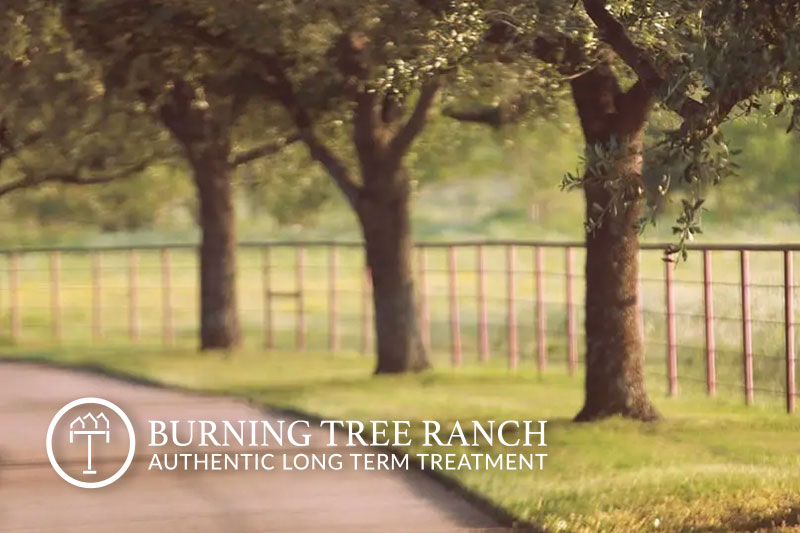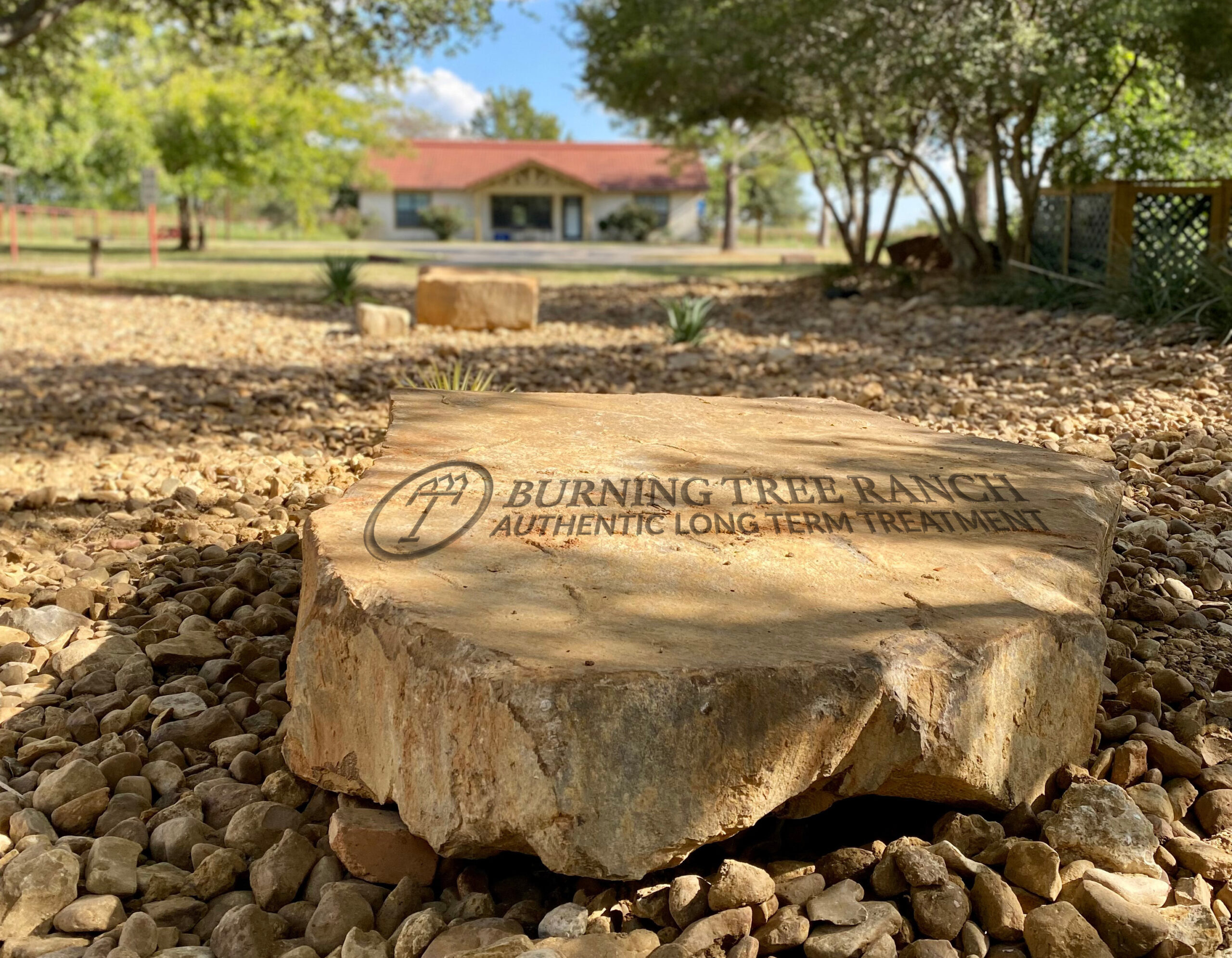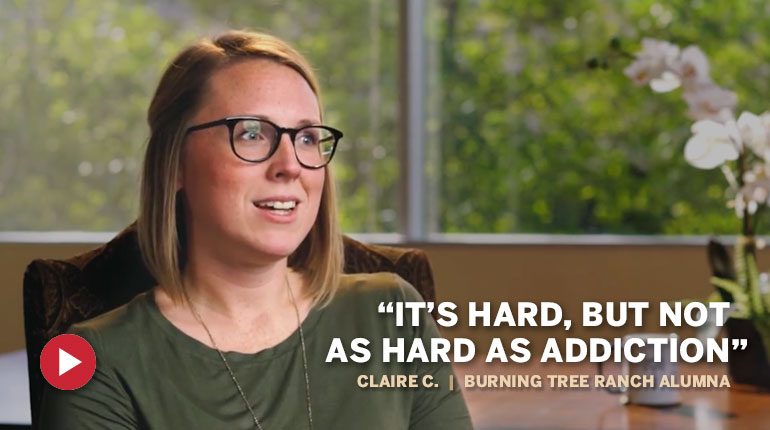Therapies
Cognitive Behavioral Therapy (CBT) for Addiction and Mental Health Treatment
Cognitive Behavioral Therapy (CBT) is a highly effective evidence-based treatment for individuals struggling with addiction and mental health disorders.
CBT is crucial for us at Burning Tree Ranch, where we deliver a comprehensive approach to helping individuals achieve lasting recovery by addressing the complex interplay between thoughts, emotions, and behaviors.
"[CBT] is clinically effective and cost effective over the long-term for individuals whose depression has not responded to pharmacotherapy."
CBT at Burning Tree Ranch
Burning Tree Ranch is a specialty program dedicated to the treatment of chronic addiction and mental health. Our program is long-term, progress-based, and highly intensive.
Inpatient CBT treatment is one of the most common and effective types of psychotherapy used in treating mental illnesses and personality disorders, as well as substance abuse issues.
We use CBT as one of several addiction treatment therapies to help our clients define what is a real problem and what is a false story they have made up to justify their actions or behaviors.

What is Cognitive Behavioral Therapy?
Cognitive Behavioral Therapy, or CBT, is a form of psychotherapy that focuses on the connection between an individual’s thoughts, emotions, and behaviors. Throughout CBT, we utilize a systematic and goal-oriented approach to address dysfunctional behaviors, thoughts, and feelings.
The core principle of CBT is that by identifying and modifying negative or distorted thought patterns, individuals can develop healthier coping mechanisms and behaviors, ultimately leading to improved mental health and well-being.
The treatment stems from the classical conditioning theory, which assumes that the fear-causing stimulus is negatively reinforced by avoidance and, therefore, maintained instead of diminished.

CBT in the Context of Substance Use Disorder
In the context of substance abuse, individuals may unintentionally reinforce their substance use when they use drugs or alcohol to relieve painful or uncomfortable feelings, such as anxiety and depression caused by past trauma.
This pattern of using substances to escape negative emotions perpetuates the cycle of addiction, preventing individuals from confronting and managing their underlying issues.
What Happens During Cognitive behavioral therapy?
When treating substance use disorders, CBT helps individuals identify and change negative thought patterns and behaviors that contribute to addiction. Through structured sessions with a trained therapist, individuals learn to recognize thoughts, develop coping strategies, and build problem-solving skills to maintain sobriety and prevent relapse.
Analyzing Thought Patterns During CBT
Step 1: Identifying the thought – First, we recognize the negative or distorted thought pattern for what it is when it causes distress.
Step 2: Challenging the thought—Next, we question the thought’s validity and realism by examining evidence for and against it. Often, this is where the logic of the distorted thought patterns starts to break down.
Step 3: Reframing the thought – We then try to replace the negative thought with a more balanced and realistic one.
Step 4: Developing coping strategies—We implement practical techniques that help us manage anxiety, improve confidence, recognize distorted thinking, and challenge our thoughts in our daily lives, particularly in stressful situations.

“CBT helps our clients define what is a real problem and what is a false story they have made up to justify their actions or behaviors.”
Brook McKenzie, LCDC, CEO
CBT for Mental Health Disorders
Although the concepts of CBT are applied across the spectrum of mental health, it is particularly effective in treating anxiety and depressive disorders.
For anxiety disorders: CBT helps individuals identify and challenge irrational fears and worries, leading to a significant reduction in symptoms such as excessive worry, panic attacks, and social anxiety.
For depressive disorders: CBT targets negative thought patterns that contribute to feelings of hopelessness and low self-esteem, helping individuals develop a more positive outlook and improve their mood.
Additionally, CBT is beneficial in treating other mental health issues, such as post-traumatic stress disorder (PTSD) and eating disorders.
When implemented by a licensed professional, CBT empowers individuals to develop coping strategies and problem-solving skills that lead to lasting improvements in mental health.

CBT in Treating Substance Use & Addiction
The thoughts, beliefs, and behaviors we cultivate throughout our lives can be a significant factor in continued substance abuse. The structured sessions of CBT help to identify, modify, or remove the patterns that contribute to addiction.
At Burning Tree Ranch, we work with clients to replace harmful patterns with more adaptive and realistic perspectives. We find that when individuals develop healthier coping mechanisms and cognitive problem-solving skills, they are better equipped to manage their responses to stress and high-risk situations. This is just one method we use to dismantle the ingrained behaviors of chronic relapsers.
Moreover, CBT in addiction treatment emphasizes the importance of building a strong support system and engaging in positive activities that promote a sober lifestyle. We help reconnect our clients to cultivate hobbies, interests, and relationships as part of a routine that supports their recovery.

Combining CBT with Other Therapies
The best treatment outcomes necessitate a comprehensive, individualized approach that incorporates multiple evidence-based therapies. CBT is often combined with other therapies, such as group therapy and EMDR, to address each client’s unique needs.
By integrating CBT with other therapies, we create a powerful synergy that enhances the overall effectiveness of treatment.
Explore Other Therapies we Use to Treat Addiction at Burning Tree Ranch
Incorporating CBT in Long-Term Treatment
The effectiveness of CBT in treating addiction and mental health disorders is well-established. At Burning Tree Ranch, we are committed to helping individuals achieve lasting recovery through evidence-based therapies like CBT.
We understand the complex, multi-faceted issues many of our families face when it comes to addiction. The circumstances of long-term residential treatment allow us to create a treatment program unlike anything else in the world.
Our promise to families is to deliver life-changing clinical interventions to those who have been unable to find freedom from the unending cycle of relapse.

